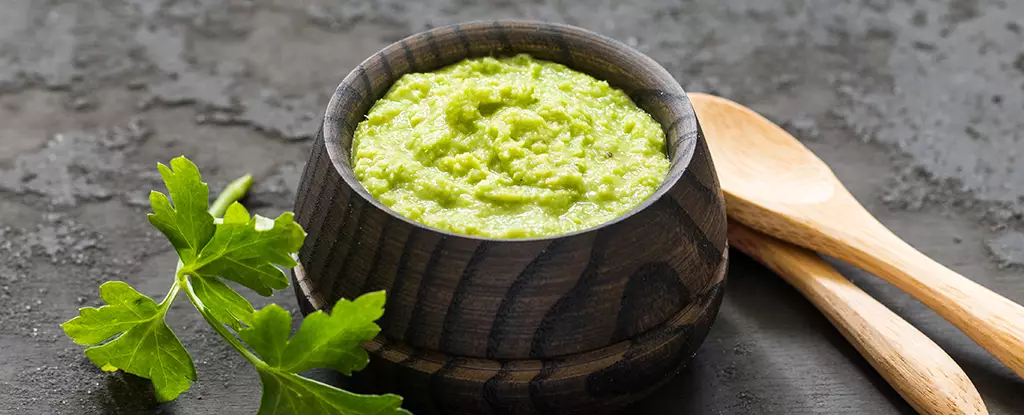Wasabi, the traditional Japanese spice known for its fiery taste, may not only enhance our dining experience but also improve cognitive function, particularly in adults over the age of 60. Recent research has identified a specific compound in wasabi, 6 methylsulfinyl hexyl isothiocyanate (6-MSITC), that has shown promising antioxidant and anti-inflammatory effects, which are known to protect cells from damage. While previous studies have explored the cognitive benefits of 6-MSITC, the effects on older adults, who are more susceptible to cognitive decline and related issues such as dementia, have not yet been investigated.
In an effort to fill this gap, a team of researchers conducted a 12-week trial involving 72 adults over the age of 60. The participants were randomly divided into two groups: one group received a daily wasabi tablet containing 6-MSITC, while the other group received a placebo tablet. At the end of the study, the individuals who consumed the wasabi tablets demonstrated significantly improved episodic memory (ability to recall past events) and working memory (temporary information retention) based on various cognitive tests. However, no notable differences were observed in reasoning, attention, and processing speed.
The researchers speculate that the positive effects of the 6-MSITC-containing wasabi on cognitive function may be attributed to its impact on the hippocampus, a region of the brain crucial for memory function. While the precise biological and molecular mechanisms behind this phenomenon have yet to be fully understood, the findings suggest a selective enhancement of working and episodic memory functions in healthy older adults through the intake of 6-MSITC. This insight opens up avenues for further investigation into the underlying biological processes that may be responsible for this cognitive improvement.
Cognitive decline in older adults can have a significant impact on their daily lives and independence. The researchers point out that those with lower cognitive performance often struggle with routine tasks such as shopping, banking, and cooking. By demonstrating the positive effects of 6-MSITC on memory function, this study highlights the potential of incorporating wasabi or its key compound into dietary interventions aimed at improving cognitive health in older adults.
While this study provides valuable insights, it is important to acknowledge its limitations. The researchers did not measure antioxidant or anti-inflammatory biomarkers in this particular trial, leaving room for speculation regarding the specific mechanisms through which wasabi exerts its effects. Further investigation is needed to elucidate the precise biological and molecular interactions underlying the cognitive benefits of 6-MSITC.
Wasabi, often enjoyed for its distinctive flavor, may offer more than just a taste sensation. Evidence from this study indicates that the presence of 6-MSITC in wasabi can enhance certain aspects of cognitive function in older adults. Future research should focus on unraveling the mechanisms involved and exploring the effectiveness of incorporating wasabi or its bioactive compound into dietary interventions. By harnessing the potential cognitive benefits of this traditional Japanese spice, we may find ourselves not only enjoying its flavor but also reaping the advantages for our brains as we age.


Leave a Reply